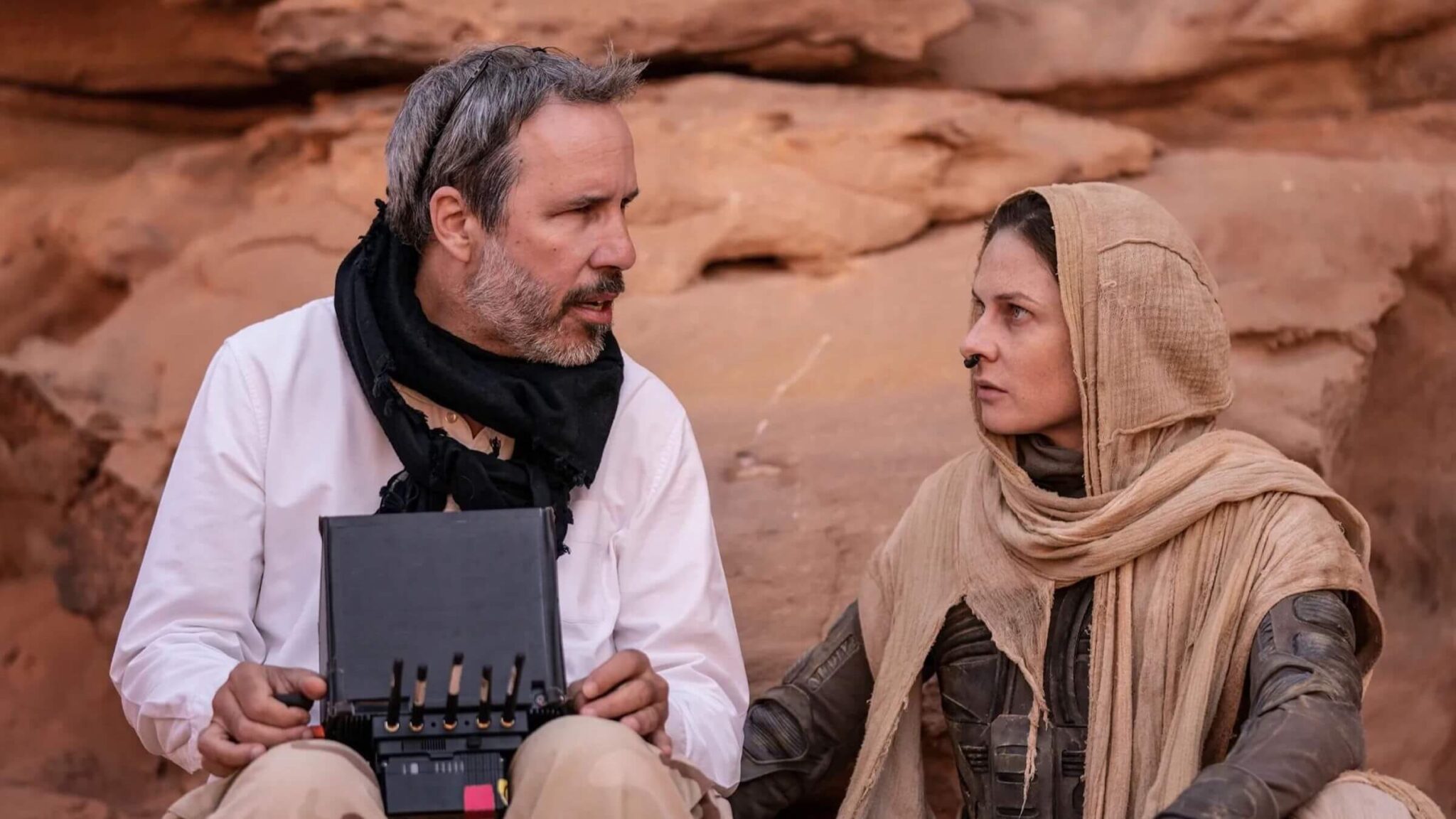
Whether you want to be a good screenwriting mentor or seek one out, you must know the seven traits that excellent screenwriting mentors need to have in order to truly make a positive difference in a writer's life and career. Do you know what they are?
We're all looking for our own Yoda, Gandalf, or Mr. Miyagi-equivalent — those wise mentors that can teach us the ways of whatever path we've chosen. And then later on in life, after we've garnered enough of our own knowledge and wisdom to share, it's only natural that we pass that down to those in need.
When looking for screenwriting mentors, too many people put too much value solely on validation in the form of feature film or television credits. Remember, a mentor can have excellent credits yet still be a shitty mentor.
There are multitudes of additional criteria that you need to look for in a good mentor — beyond the obvious and necessary trait of having a lot of experience within the art, craft, and business of screenwriting. They could have a background in studio development, where no credits are given. They could have assignments, sales, and options as a professional screenwriter, with no produced work. They could have produced scripts that suffered from bad directing, bad casting, or bad editing — or the production could have suffered from budget constraints and production rewrites.
Whatever the case may be, a good screenwriting mentor that can make an impact on a writer's life and career doesn't always have to have the stellar resume — but they do need to embrace seven particular characteristics in order to make the best possible impact on any budding writer that they take under their wing.
So if you want to take somebody under your wing or if you are looking for someone to guide you through your own screenwriting journey, know that good screenwriting mentors have to...
1. Be Objective

Part of being a good mentor is having the ability to disassociate their own work, their own visual styles, their own habits, and their own likes and dislikes, from whatever script they are reading.
If a mentor hates action movies and their protege is writing an action script, they have to look beyond their subjective viewpoint of the genre and ask themselves questions like:
- Would this be a popular action flick for those that love them?
- Hey, my wife loves these types of movies. Would she love it?
- Is this a concept within that genre that I haven’t seen before?
- Are the characters in this action script original and new, or at the very least, do they offer a different approach or different angle on what we have seen before in these types of movies?
Then they can move into questions like:
- Is the script well-written?
- Is it easy to follow the story and character arcs?
- Is the dialogue strong?
- Is there a true beginning, middle, and end or do they introduce a concept and seem to not know where to go with it?
If a mentor can't disassociate their own subjective preferences, they aren't serving the writer.
2. See the Big Picture
Good screenwriting mentors need to have the ability to know and understand the full spectrum — the art, craft, and business of screenwriting.
It's not enough to be able to help crack a good story and craft amazing characters. That's just the beginning. There are many elements attached to that script or concept — beyond the story and characters.

That work is necessary, but it has to be performed within the context of the industry guidelines, expectations, and demands as well.
- Will this sell?
- Who would be most willing to buy it?
- Is the concept original enough or is it just another knockoff of Fast and Furious?
- Does it have strong leads that are going to draw in major talent?
- What’s the demographic for this script?
- Is it contemporary and does it jive with the current industry?
These questions and so many more have to be taken into account. Mentors need to communicate all aspects of the screenwriting trade to their proteges.
3. Know That It Is the Writer's Story, Not Theirs
One of the most common mistakes when critiquing screenplays or writing feedback and script coverage is the script reader telling the writer what direction they would go with the concept, story, and overall script.

A mentor must avoid this at all costs.
Instead, a good screenwriting mentor offers multiple options that will engage the writer's creative process in determining which story or character option — if any — are the right way to go.
If a mentor imposes their own interpretation of the concept, story, and character, they are doing a disservice to their protege.
4. Be Truthful
There's nothing worse than a mentor that — to be blunt — simply blows smoke up a writer's backside. Endless positive feedback doesn't help the writer to grow, doesn't challenge them to be better, and certainly doesn't prepare them for the film and television industry.
If you are trying to be a mentor to someone and do this, you're hurting their chance at success. If you're looking for a mentor and find one that does this, they're hurting your chance at success.
Endless positive feedback destroys chances of realizing dreams because that means the mentor didn’t care for enough for the writer to offer the truth, or at least their interpretation of it.
And even if a mentor truly loves a script, they still have to do their job and point out the good, bad, ugly, and everything in between.

Honesty is the best policy when is comes to feedback.
5. Take the Ego Out of Being a Mentor

Just because a mentor has a set of skills, knowledge, and wisdom to share, doesn't mean they are sitting above anyone else they take on as their protege. Ego has no place in a good mentoring relationship.
Being a mentor is less about using that mentorship to stroke one's own ego and more about working in collaboration.
If the writer is trying to crack a script that they're having trouble with, the mentor isn't there to swoop in and save the day — they are there to collaborate in a way that helps the writer find options to consider.
If the writer is trying to break into the industry with a hot script, the mentor isn't there to cash in on that writer's potential success — they are there to guide them through the creative and business process for the sole benefit of the writer. If the mentor is a manager, yes, they get their cut, but a good manager doesn't chase the dollars for their own personal glory. They instead do their best to offer the writer the best possible career overall — which in turn is mutually beneficial to the manager as well.
A good screenwriting mentor is nothing more than a creative collaborator and business adviser there to share the knowledge, experience, skills, and contacts they themselves have garnered over the years prior.
6. Always Be There
The worst mentors are never there. They agree to read a script and share feedback, only to take multiple weeks or months to do so with endless excuses.
This is perhaps the biggest red flag when it comes to mentors — when they just don't seem to have the time to help their proteges.
If you want to be a mentor, be there for the writer. If you're looking for the right mentor, make sure they are always ready and willing to help.
7. Open Doors
Hollywood is full of closed doors.

The one's who succeed are those that manage to either sneak in the back or meet people that can open those doors for them.
If your mentor claims to be a manager, but only seems to be cold calling or cold querying potential suitors for your script, you could be doing just the same on your own.
Read ScreenCraft's Writing the Perfect Query Letter for Your Scripts!
If you are mentoring someone and can't offer them any type of introduction — even on the most basic of levels — you need to do your best to find them someone that can.
This final characteristic is what separates the good from the excellent. Any screenwriting mentor can have full grasp of the first six characteristics and still make a difference in someone's life and career. But the best of the best possess this seventh characteristic that can truly change someone's life.
There are no guarantees. Mentors don't need to be best friends with Spielberg or the top agents. But if they can offer the added benefit of making some introductions — big or small — within the industry, the better mentor they will be for anyone that finds themselves under their wings.
You don't have to be an Oscar winner or box office golden boy or girl to be a solid screenwriting mentor — but you do need to have the experience, knowledge, wisdom, and skills to share.
Finding a good mentor and being a good mentor encompasses these seven traits. A good screenwriting mentor needs to be objective, needs to know that it's the writer's story not theirs, needs to be truthful, needs to take the ego out of being a mentor, needs to always be there, and needs to be able to help open doors within the industry.
Be the best you can be as a screenwriting mentor by mastering these seven traits and choose wisely when you're looking for a screenwriting mentor by finding those that clearly showcase these defining traits.
Ken Miyamoto has worked in the film industry for nearly two decades, most notably as a studio liaison for Sony Studios and then as a script reader and story analyst for Sony Pictures.
He has many studio meetings under his belt as a produced screenwriter, meeting with the likes of Sony, Dreamworks, Universal, Disney, Warner Brothers, as well as many production and management companies. He has had a previous development deal with Lionsgate, as well as multiple writing assignments, including the produced miniseries Blackout, starring Anne Heche, Sean Patrick Flanery, Billy Zane, James Brolin, Haylie Duff, Brian Bloom, Eric La Salle, and Bruce Boxleitner. Follow Ken on Twitter @KenMovies
For all the latest ScreenCraft news and updates, follow us on Twitter, Facebook, and Instagram.
Tags
Get Our Screenwriting Newsletter!
Get weekly writing inspiration delivered to your inbox - including industry news, popular articles, and more!




























